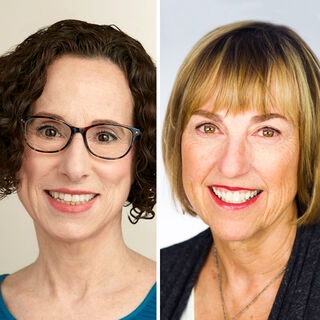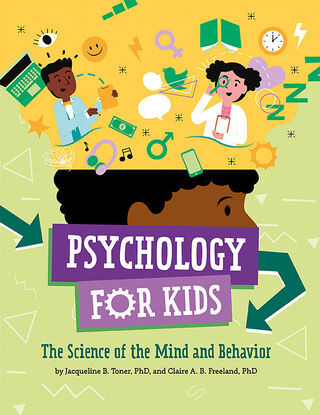Psychology
Psychology for Kids
The Book Brigade talks to psychologists Jacqueline Toner and Claire Freeland
Posted August 11, 2021 Reviewed by Lybi Ma

Children, in many ways, are natural psychologists, trying to figure out the world and, especially, the people around them. After all, their life depends on them completely. Studies of infants show that they monitor the frequency of events and make predictions about the future. Born scientists, they also infer causation, particularly about physical events. Two psychologists believe it’s time to build on those natural instincts.
What inspired you to write a book about psychology for kids?
Most kids are not introduced to psychology before high school and, even then, typically only if they take advanced-level courses. Yet the topics of psychology are innately interesting to kids and the topics accessible. We felt it was time to share the excitement.
Your book focuses on teaching children principles of psychology rather than psychological skills for mental health. How did you make that decision?
Of course, we think that books that teach mental hygiene and coping are important, and we’ve written a number of them. But, with the great number of science books available for kids, there is a dearth of material for kids on the social sciences. We wanted kids to know that psychology is, in fact, a science and that psychological knowledge is based on careful research.
Although this book was not designed to be therapeutic, in the stress chapter we presented a mindfulness and a calming “try this.” In the chapter, “What about when it all feels like too much?” we included a “try this” that presents CBT concepts and a “Did you know?” that introduces anger management strategies.
What are the most important principles of psychology that children need to know?
One of the most important lessons of our book is that psychology is not magic. Nor is it based merely upon opinion or experiences of experts. It is the result of the same kind of rigorous scientific methods used in the “hard” sciences. We hope that readers gain a sense that difficult questions about personal development, thoughts, emotions, behavior, social relationships, and even interactions with the environment are topics that can be explored systematically.
What is the advantage of young children knowing about psychology?
The advantage of learning about psychology isn’t very different than learning about other areas of science: to pique interest in the world around them and develop critical thinking skills. Kids can learn to question information in the media and consider whether there’s a research basis to so-called facts.
One chapter asks: What does it mean to be a boy or girl? At what age do children grasp distinctions between sex and gender, “society’s expectations," and "gender stereotypes” and why do young children need to know about them?
Although children may not be able to fully articulate gender differences, expectations, and stereotypes, evidence suggests that they are influenced by these social pressures from a very early age. By introducing these concepts explicitly, children who are challenged by gender stereotypes may feel supported and clearer about their own thoughts and feelings.
The book is peppered with little “try this” experiments. How did you decide what kids could test for themselves? And what do you want them to get out of that?
We wanted the book to be fun and accessible and allow kids to dip in and out of it, choosing to explore what interested them. By having some hands-on experiences, we hoped to more fully engage them in learning psychological concepts. We also have cool fun facts, research highlights, and actual psychology terminology. We would have loved a book like this when we were at the middle-grade level.
Did you do any research beforehand on what kids most want or need to know about how people “work"? How did you decide what to cover?
Since we assumed that kids had little or no exposure to the breadth of psychological research, we did not ask kids to share topics of interest. Instead, we attempted to present a wide range of introductory information that we felt was relevant to this age group. We were influenced (though not restricted by) topics often covered in introductory psychology books for older audiences and added topics we thought would be especially interesting to kids (such as self-concept and environmental issues). We didn’t include some topics that we felt might not be as relevant to young readers and simplified others.
There’s a chapter on “What Makes Me Me?” What do you think it’s especially important for kids to know about themselves and their identity?
This topic is of the utmost interest to kids in our target audience. Tweens and young teens are at a stage in life when they are working hard to define themselves. A peek at the research foundations of identity provides perspective and nuance.
If you had to limit yourself to one item, what one idea or insight would you like kids to get from this book?
At the risk of being repetitious, the unifying theme of the book is the notion that psychology employs scientific methods to try to answer questions about the mind and behavior. In the second chapter, we introduce some basic social science research methods. Then, throughout the following chapters, readers learn about the interesting (and sometimes surprising) findings that have been discovered through psychological study. We hope that kids appreciate the many topics psychologists study, from the brain to memory to conflict to development, and so forth.
About THE AUTHOR SPEAKS: Selected authors, in their own words, reveal the story behind the story. Authors are featured thanks to promotional placement by their publishing houses.

References
Please visit: Psychology for Kids




